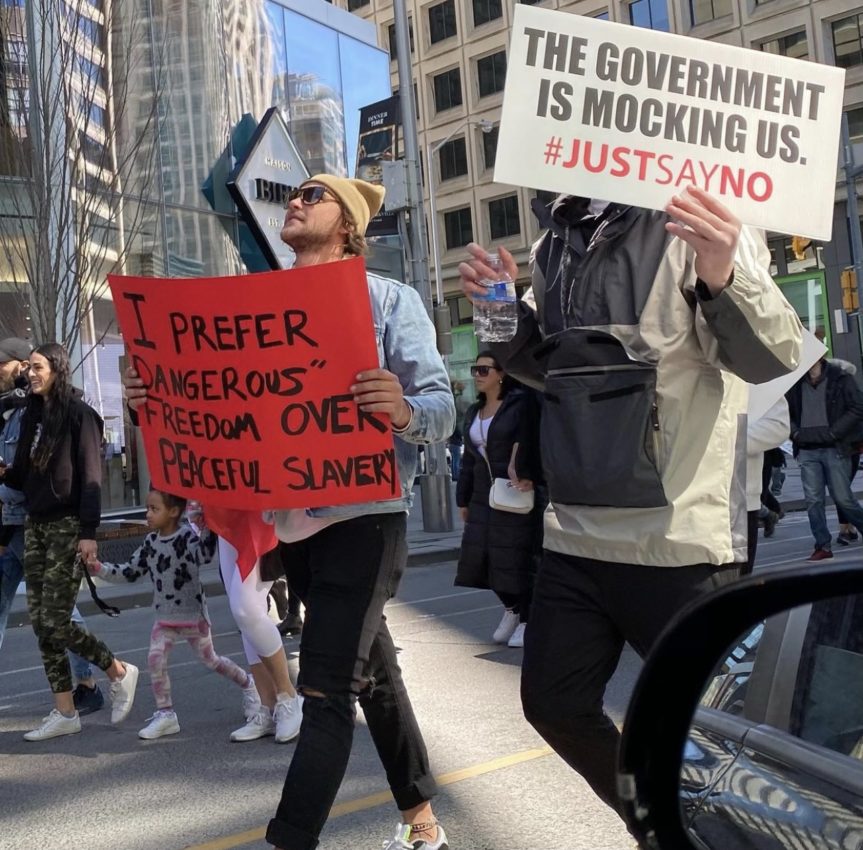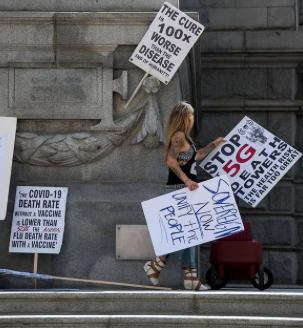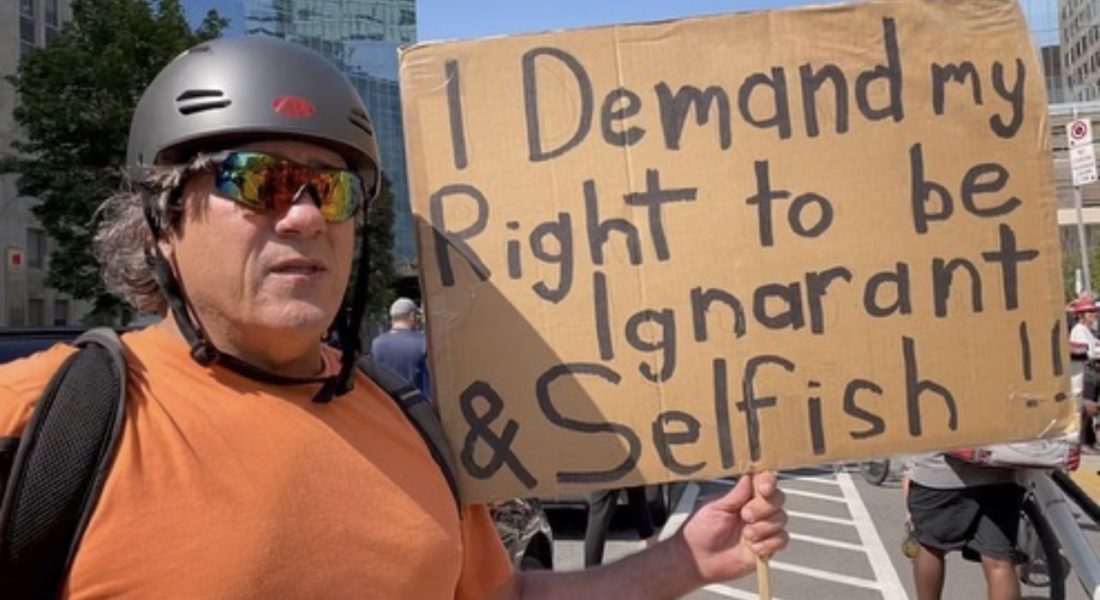
Some of the protesters targeting Canadian hospitals recently have argued that they are fighting for “personal freedom” and aren’t anti-vaccine. Regardless of what label they use to describe themselves, one thing is undeniably clear to me — hospitals are not the appropriate place to demonstrate your opinion on these matters.
Hospitals are places of healing and mourning.
No matter how peaceful the protest may be, protesting at a hospital over policies created by the government and its agencies is inconsiderate of the ill, their families and those who care for them.
We all have a right to protest, but I suggest doing so at the Saskatchewan Legislative Building in Regina instead.
Why? Because protesting at hospitals undermines the efforts of health-care workers over this pandemic. A recent survey by Statistics Canada found that over three-quarters of health-care professionals working in direct contact with COVID-19 patients reported worsening mental health. It is evident that health-care workers are burnt out, and many are frustrated with lax restrictions despite increasing case numbers and already overcrowded hospitals.
However, not all health-care workers share the same sentiment. I was shocked to discover that some of these protesters were also health-care workers.
A silent vigil organized by Canadian Frontline Nurses saw about 40 people gather behind Saskatoon City Hospital on Sept. 13 to display their disapproval of a vaccine mandate for employees of the Saskatchewan Health Authority.
The group belongs to a greater collective including other health-care professionals, police, teachers, and legal experts called Professionals Against Lockdowns. According to their website, the collective aims to “be the voice for the voiceless” and to speak out against “draconian measures” enforced by the federal and provincial governments, and other agencies.
While getting vaccinated against COVID-19 was an easy decision for me — it was the best way that I could protect myself and those around me — I recognize that vaccines alone aren’t the only way out of this pandemic. More must be done to curb the spread of COVID-19, especially as school-age children too young to be vaccinated returned to school earlier this month.
However, vaccines are still very important.
According to data collected by Saskatchewan’s Ministry of Health, just 9.4% of fully vaccinated individuals contributed to the total number of COVID-19 cases reported in Saskatchewan for July of this year.
That’s why I was thrilled to hear that the U of S would require its students to show proof of vaccination or submit to regular testing — the first post-secondary institution in the province to do so.
These mandates make me feel safer on campus, and with the recent announcement that the provincial government now requires masks in all indoor spaces and will soon implement a vaccine passport, I can now feel safer in my greater community.
Many have argued, as the Canadian Frontline Nurses have, that it is unfair to restrict access to non-essential services, or at the very least, inconvenience those who remain unvaccinated by enforcing mandatory COVID-19 testing. But nothing about these requests seem “draconian” to me at all.
If you decide not to get vaccinated, then wearing a mask, staying home when sick and staying an appropriate distance away from others should be more of a consideration for you than it is for your vaccinated counterparts — many of whom continue to do these things even when restrictions are absolved or lessened, despite already having a lower risk of spreading COVID-19.

If the safety of others has not been a priority of yours throughout the COVID-19 pandemic, then you must remember that you are largely responsible for its continued presence, as hospitals overflow with mostly unvaccinated COVID-19 patients — a scenario that can be easily avoided with a quick and painless jab.
It is clear that vaccines are one of the most effective ways to protect ourselves and those around us from COVID-19, and those who remain unvaccinated by choice should stop making the pandemic about themselves and their “freedoms.”

—
This op-ed was written by a University of Saskatchewan undergraduate student and reflects the views and opinions of the writer. If you would like to write a reply, please email opinions@thesheaf.com. Jakob is a third-year undergraduate student studying physiology and pharmacology, and the staff writer at The Sheaf Publishing Society.
Photos: As Credited
Leave a Reply